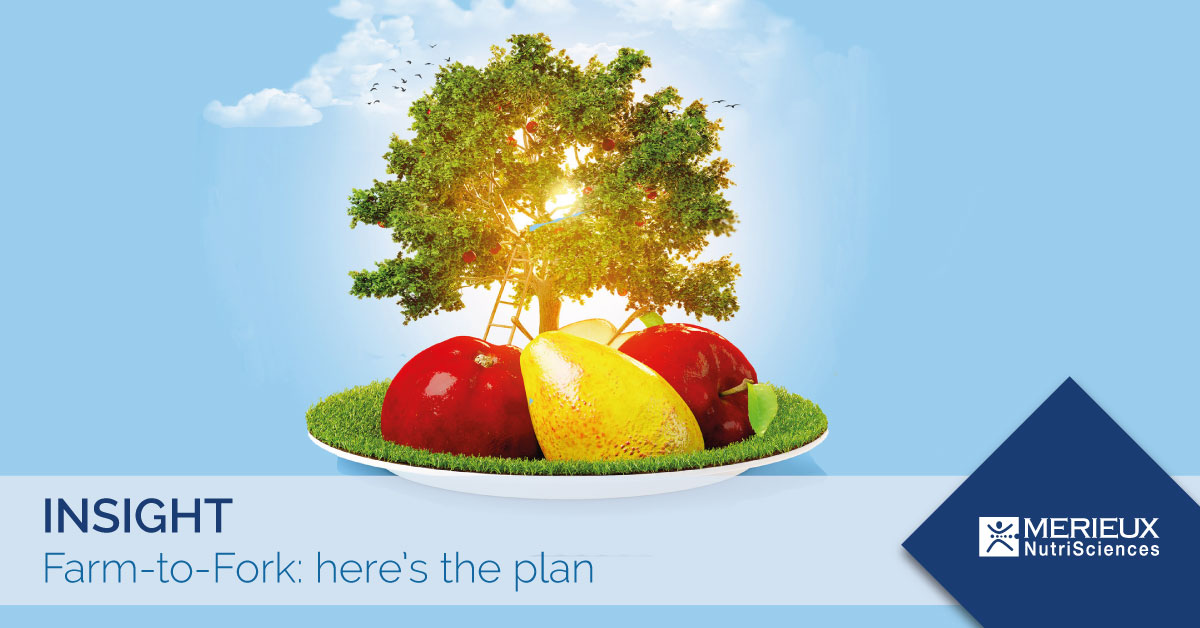Farm-to-Form is a strategy that will implement a series of legislative initiatives that will improve the level of food health of the European Union. Let's see how it will be implemented in the coming years.
The importance of a regulatory intervention to ensure the healthiness of food is a very effective tool, a perfect example is the series of legislative changes that are part of the Farm-to Fork Strategy which aims to lead the transition towards a sustainable and equitable food system for EU Member States as well as increasing their level of food safety.
The measures planned for the next few years are as follows:
| ACTIONS |
Indicative timetable |
N° |
| Proposal for a legislative framework for sustainable food systems |
2023 |
1 |
| Develop a contingency plan for ensuring food supply and food security |
Q4 2021 |
2 |
| Ensure sustainable food production |
| Adopt recommendations to each Member State addressing the nine specific objectives of the Common Agricultural Policy (CAP), before the draft CAP Strategic Plans are formally submitted |
Q4 2020 |
3 |
| Proposal for a revision of the Sustainable Use of Pesticides Directive to significantly reduce use and risk and dependency on pesticides and enhance Integrated Pest Management |
Q1 2022 |
4 |
| Revision of the relevant implementing Regulations under the Plant Protection Products framework to facilitate placing on the market of plant protection products containing biological active substances |
Q4 2021 |
5 |
| Proposal for a revision of the pesticides statistics Regulation to overcome data gaps and reinforce evidence-based policy making |
2023 |
6 |
| Evaluation and revision of the existing animal welfare legislation, including on animal transport and slaughter of animals |
Q4 2023 |
7 |
| Proposal for a revision of the feed additives Regulation to reduce the environmental impact of livestock farming |
Q4 2021 |
8 |
| Proposal for a revision of the Farm Accountancy Data Network Regulation to transform it into a Farm Sustainability Data Network with a view to contribute to a wide uptake of sustainable farming practices |
Q2 2022 |
9 |
| Clarification of the scope of competition rules in the TFEU with regard to sustainability in collective actions. |
Q3 2022 |
10 |
| Legislative initiatives to enhance cooperation of primary producers to support their position in the food chain and non-legislative initiatives to improve transparency |
2021- 2022 |
11 |
| EU carbon farming initiative |
Q3 2021 |
12 |
Stimulate sustainable food processing, wholesale,
retail, hospitality and food services’ practices |
| Initiative to improve the corporate governanceframework, including a requirement for the food industry to integrate sustainability into corporate strategies |
Q1 2021 |
13 |
| Develop an EU code and monitoring framework for responsible business and marketing conduct in the food supply chain |
Q2 2021 |
14 |
| Launch initiatives to stimulate reformulation of processed food, including the setting of maximum levels for certain nutrients |
Q4 2021 |
15 |
| Set nutrient profiles to restrict promotion of food high in salt, sugars and/or fat |
Q4 2022 |
16 |
| Proposal for a revision of EU legislation on Food Contact Materials to improve food safety, ensure citizens’ health and reduce the environmental footprint of the sector |
Q4 2022 |
17 |
| Proposal for a revision of EU marketing standards for agricultural, fishery and aquaculture products to ensure the uptake and supply of sustainable products |
2021- 2022 |
18 |
| Enhance coordination to enforce single market rules and tackle Food Fraud, including by considering a reinforced use of OLAF’s investigative capacities |
2021- 2022 |
19 |
Promote sustainable food consumption,
facilitating the shift towards healthy, sustainable diets |
| Proposal for a harmonised mandatory front-of-pack nutrition labelling to enable consumers to make health conscious food choices |
Q4 2022 |
20 |
| Proposal to require origin indication for certain products |
Q4 2022 |
21 |
| Determine the best modalities for setting minimum mandatory criteria for sustainable food procurement to promote healthy and sustainable diets, including organic products, in schools and public institutions |
Q3 2021 |
22 |
| Proposal for a sustainable food labelling framework to empower consumers to make sustainable food choices |
2024 |
23 |
| Review of the EU promotion programme for agricultural and food products with a view to enhancing its contribution to sustainable production and consumption |
Q4 2020 |
24 |
| Review of the EU school scheme legal framework with a view to refocus the scheme on healthy and sustainable food |
2023 |
25 |
| Reduce food loss and waste |
| Proposal for EU-level targets for food waste reduction |
2023 |
26 |
| Proposal for a revision of EU rules on date marking (‘use by’ and ‘best before’ dates) |
Q4 2022 |
27 |
The legislative challenge for the European Union is considerable, but if the deadlines are met, the benefits for consumers will be manifold. In addition to the definition of a new food system, it is also important to mention the measures concerning food labeling such as the indication of origin, the nutritional profiles, nutritional and sustainable food labeling as well as date stamping.
Not to mention the proposed measures in the field of sustainability of food production such as the establishment of mandatory minimum criteria for the acquisition of sustainable food, the definition of maximum levels for some nutrients and the reformulation of processed foods.


